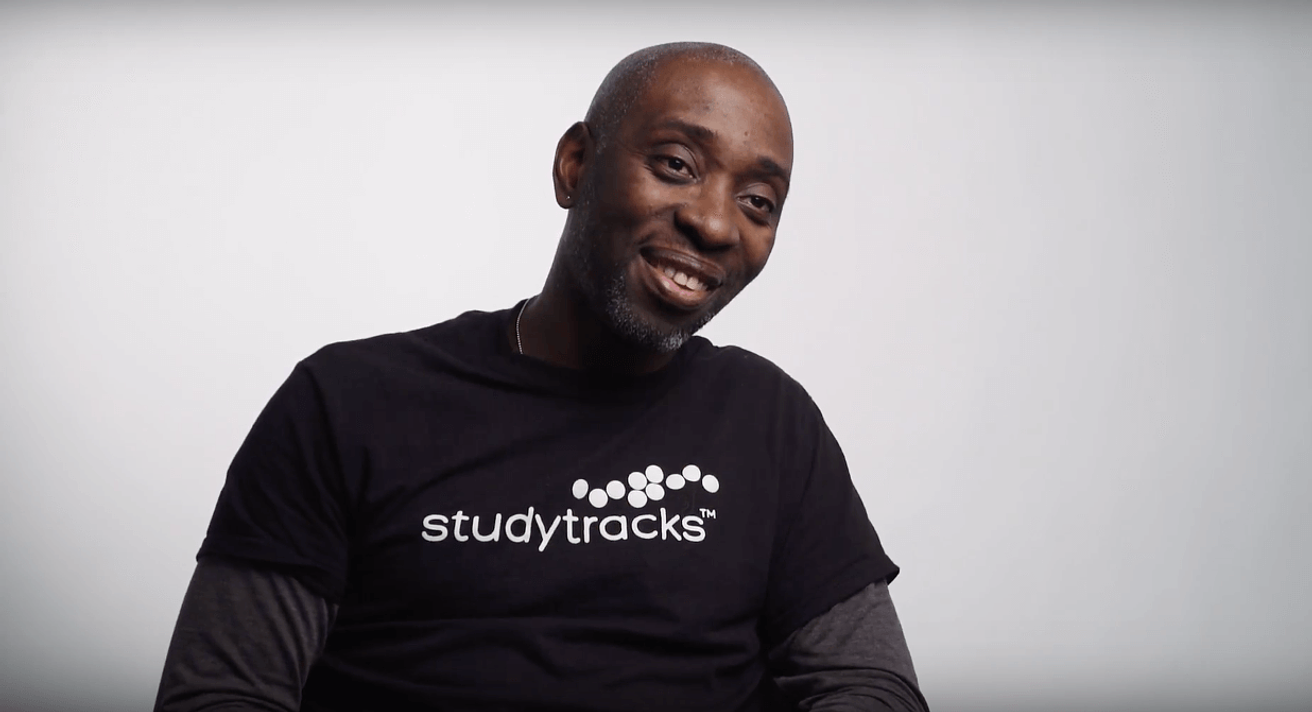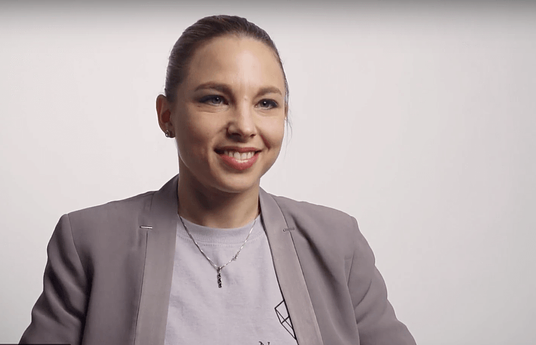George Hammond-Hagan
George Hammond-Hagan is an Ivor Novello award-winning music producer and founder of Studytracks, an app that fuses music with study materials.
Do you feel that the current way we are educating children fully prepares them for the needs of the 21st century?
I think that’s a really good question to ask because I read an article about 2 or 3 weeks ago about how there needs to be a lot more innovation in education, because they still teach it the same way they did a hundred years ago. It’s still the teacher at the front of the classroom giving information from whatever book, whatever curriculum it is. I think there definitely needs to be something more done.
Also, I’ve got a little daughter who’s about to start school and we’ve sent her to a private school and one of the things that was a tipping point for me was that they start teaching kids coding from when they are 7 years old, which I think is really important. Will.i.am said coders are the new rock-stars and I think those kinds of 21st century skills are really relevant because the workforce is going to be really different in 15 years’ time.
If you’re not using digital means of teaching kids how to use new tools, being innovative with the new tools, they’re going to be left behind. I read a lot of stuff about different things - there’s an article I read about AI and how it's changed the workforce and how it’s going to affect industries like accounting and law and so on. So, we need to be teaching kids to be ready for the workforce in twenty years’ time and it’s going to be very different.
Technology, digitization is very, very relevant, it’s only going to increase. There’s some schools that don’t believe children should be using technology from a young age and for me that doesn’t make sense; we’re not back in the 20th century, now technology is the future so it has to play an important part.
What is the role of the teacher?
The role of the teacher, that’s a really good question! It isn’t just about imparting knowledge, yes kids go to school to learn, but it’s not just about learning history, French, physics, it’s about helping to mould a child for adulthood.
So, instilling things like confidence, how to actually manage your time, how to take something from a thought and turn it into an actual thing, teaching them that you have no limits, the world is your oyster!
Teaching these kids to be champions, be leaders and so on – I think that is an important role, it’s not just the teacher’s role, I think everything to do with a child’s development, from parents to wherever, it’s all a part of it. Because kids spend so much of their day in the school, a teacher’s role is very important for those reasons, in my opinion.
What do you feel the most exciting or effective learning environment would be?
The most exciting learning environment for a kid, I think is whatever environment engages them. My son, when he was doing his GCSEs, to get him to sit still at a desk to study was just not the thing that worked for him, which was the thing that spurred what we do [at Studytracks.]
If kids can learn something, whatever they are consuming, their media, wherever they are getting their information, whether it’s on their mobile phone or whatever, you need to tap into that and deliver it in a way that’s relevant to the kid because if you’re not engaging them they’re not going to find the subject exciting.
One of the things we talk about is studying anywhere, putting headphones on and studying wherever you like, because the simple thing is – if you can make learning accessible and have kids start consuming it outside of the classroom, that starts becoming very powerful.
Do you think standardized testing is the most effective way to judge learning?
In a word - no. I don’t think it is because some kids don’t perform well in tests and so on that one day, whatever they did up until then may not count for anything. Exams are changing, English exams are now closed book and if you have a bad day and you don’t recall certain quotes from certain poems and you’re not able to match them effectively then you’re marked on that day’s performance and I don’t think that’s fair.
There should be a lot more that’s taken into consideration about a kid’s ability because some kids don’t do well in tests but they excel in other areas. Me, I was a kid who wasn’t someone who performed well in tests. However, my thing was creativity, - I’ve won an Ivor Novello [Award], I’ve built businesses - so a test isn’t a measure of how good a kid is, I don’t think.
What role do you think government should play in education?
I think for someone to have a really strong opinion about education and what should happen as far as leadership is concerned, they need to have been an educator and they need to have been at the coalface to know exactly what it means.
I think a career politician advising about educating makes no sense – it’s like a career politician trying to tell an artist how to paint, you’ve never painted, you’re not fully qualified, you’ve got an opinion on it, because its art, but if you haven’t been through the process, you haven’t been at the coalface, you haven’t seen what the challenges are, the struggles are, where the success can be made and so on. It makes it really hard for you to be someone who can have a real strong opinion on it.
I think people in leadership roles in government have to come through that process, I think then they will be the ones who are able to offer the most insight into what is really needed.
In your experience, can an innovation that works well in one place, work in another?
Not necessarily, I’ve been having conversations about what we do and how it fits in different things and we are delivering music, we’re delivering through music, but some kids may not be into the music we do. One size doesn’t fit all.
There are so many things that are relevant to how kids learn that you’ve got to try different things. The key thing is you’ve got to innovate, to keep finding new ways to engage and inspire and help kids to do more.
What was your favorite moment or experience in your own K12 education?
My favorite moment – I was 7 years old and my school was one of those primary schools that really pushed things like music and art and everything and my eldest brother was in the school assembly playing the drums. This was back in the day when you had the Inner London Education Authority and they would subsidize music and so on. My brother was playing the drums to Rolling Stones’ ‘Satisfaction’ and the whole school was looking at my eldest brother and I was like “that is cool! I want that!”
My parents asked me what I wanted for my 8th birthday and I said, “drum lessons.” I went into school on my 8th birthday and you had to be measured, you had to be 4 Foot 6 Inches [1.4 metres] to play the drums and I was actually that height on my birthday!
The best part was that my drum lessons, because they were subsidized, were only 25p and it was that moment when I started playing drums that got me into everything that I did as an adult. I made music for my life, so but for that situation I’d never be making music, so I think that is my favorite memory from my school.
Did you have a favorite teacher?
I had an English teacher, Mr Gadofsky, and I really liked him – he was strict! But he was also really funny and he made the lessons come alive, he didn’t just teach, reading from a book, everything he did had this flair about it and it was really engaging and I remember him.
In my primary school, my headmaster was the best teacher I ever had. He as a headmaster – one, he was very strict, so there was a certain level that you always had to bring to school, but he always made you believe that you could do more. When I left primary school, I played 5 instruments well enough to play them in public and that was because he would actually take time in lunch breaks and when we were getting ready for school plays, he’d sit down and teach me how to play ukulele. He was by far the best teacher I ever had. Mr Lashbrook, if he ever sees this, thank you, sir!
The next 100 years of education should… contain a lot of innovation, a lot of ways to engage kids and should be less about the teacher imparting information and more about the kids getting involved in discussing what they’re learning. And a lot of technology!



